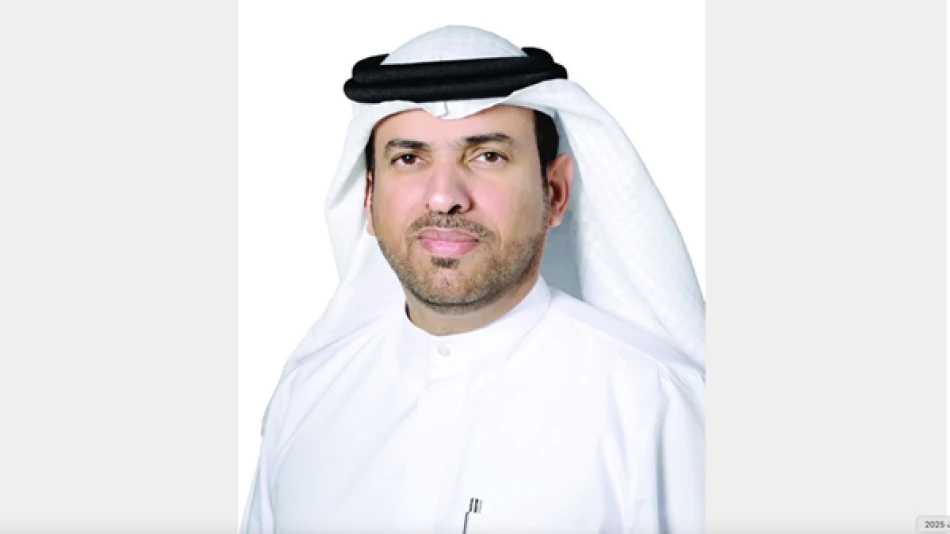
Prestigious Quranic Competition Honors Sheikha Hind Bint Maktoum's Legacy in 26th Edition
Dubai Launches 26th Annual Quran Competition Under Royal Patronage
Dubai has announced the launch of its 26th annual Sheikha Hind bint Maktoum Quran Competition for 2025, reinforcing the UAE's position as a leading center for Islamic scholarship and Quranic education in the Middle East. Under the patronage of Sheikha Hind bint Maktoum bin Jumaa Al Maktoum, the competition represents one of the region's most significant religious and cultural initiatives, attracting participants from across the Emirates' diverse population.
Strategic Religious Investment in Cultural Identity
The competition, organized by Dubai's Department of Islamic Affairs and Charitable Activities through the Dubai International Holy Quran Award, demonstrates the UAE's systematic approach to preserving Islamic heritage while building modern cultural infrastructure. This initiative aligns with the broader Gulf strategy of using religious and cultural programs to strengthen national identity amid rapid modernization.
Ahmed Darwish Al Muhairi, Director General of Dubai's Department of Islamic Affairs and Chairman of the Dubai International Holy Quran Award Board of Trustees, emphasized that the competition embodies Dubai's vision of supporting Quran memorizers and empowering Quranic role models, consistent with leadership's approach to strengthening Islamic identity.
Comprehensive Competition Structure
The competition offers seven distinct categories ranging from memorization of the complete Quran to specific sections including Juz Amma (30th section), and portions of three, five, ten, and twenty chapters. This tiered approach accommodates different skill levels and age groups, making the competition accessible to both citizens and residents regardless of nationality.
Registration continues through September via the official website (Shq.quran.gov.ae), with preliminary rounds beginning in October. The format combines modern technology with traditional assessment methods, conducting initial rounds through video calls before advancing top participants to in-person finals at the award headquarters.
Regional Context and Significance
This initiative positions Dubai alongside other Gulf capitals investing heavily in religious education and cultural preservation. Similar to Saudi Arabia's Haramain competition and Qatar's international Quran recitation contests, Dubai's program serves dual purposes: maintaining religious traditions while projecting soft power influence across the Islamic world.
The competition's emphasis on training participants to represent the UAE internationally reflects a strategic approach to cultural diplomacy. By developing skilled Quran reciters, Dubai creates ambassadors who can enhance the country's reputation in Islamic scholarly circles globally.
Modern Approach to Traditional Values
The competition's hybrid format—combining remote preliminary rounds with in-person finals—demonstrates how traditional Islamic education adapts to contemporary realities. This approach became particularly relevant during the pandemic and continues to expand accessibility for participants across the UAE's seven emirates.
Ibrahim Jasim Al Mansoori, Acting Director of the Dubai International Holy Quran Award, noted that the competition advances noble objectives while embodying leadership's vision of establishing authentic Islamic values and strengthening the UAE's position as a beacon for Quran dissemination.
Long-term Cultural Investment
The competition represents more than religious education—it's cultural infrastructure building. By systematically identifying, training, and promoting Quranic scholars, Dubai creates a sustainable pipeline of religious leadership while reinforcing the emirate's reputation as a center for Islamic learning.
The November finals schedule, with male competitions from November 15-20 and female competitions from November 22-27, culminates months of preparation and demonstrates the significant resources allocated to this cultural initiative. Specialized judging committees ensure high standards while maintaining the competition's prestigious reputation.
This sustained investment in religious education reflects Dubai's broader strategy of balancing rapid economic development with cultural preservation, positioning the emirate as a bridge between traditional Islamic values and modern global engagement.
Most Viewed News

 Layla Al Mansoori
Layla Al Mansoori






